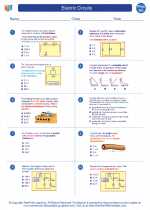Ancient Egypt
Ancient Egypt was a civilization of ancient Northeastern Africa, concentrated along the lower reaches of the Nile River. It was one of the world's first nation states.
Economy
Ancient Egypt's economy was based largely on agriculture, and the fertile Nile valley provided the necessary conditions for abundant harvests. The Egyptians also engaged in trade, exporting goods such as grain, gold, papyrus, and linen.
Religion
Religion played a central role in ancient Egyptian society. The Egyptians believed in a pantheon of gods and goddesses, and their religious practices included elaborate rituals and ceremonies, as well as the construction of grand temples and monuments.
Government
Ancient Egypt was ruled by pharaohs, who were believed to be divine and had absolute power over the land. The pharaohs were assisted by a bureaucracy of officials and priests who helped govern the country.
Art and Architecture
Ancient Egypt is famous for its monumental architecture, including the construction of pyramids, temples, and tombs. The Egyptians also excelled in the arts, producing intricate jewelry, pottery, and paintings.
Study Guide
- What were the main economic activities in ancient Egypt?
- Describe the religious beliefs and practices of the ancient Egyptians.
- Who ruled ancient Egypt, and what was their role in society?
- What are some examples of ancient Egyptian art and architecture?
Use the study guide questions to review the key aspects of ancient Egypt and test your understanding of the topic.
[Ancient Egypt] Related Worksheets and Study Guides:
.◂Physics Worksheets and Study Guides High School. Electric Circuits

 Worksheet/Answer key
Worksheet/Answer key
 Worksheet/Answer key
Worksheet/Answer key
 Worksheet/Answer key
Worksheet/Answer key
